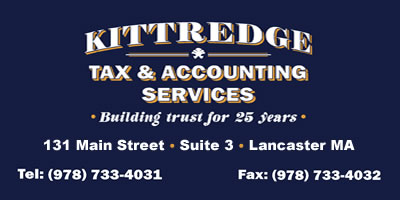Client Services
Online Appointment Scheduling

Credit cards accepted
Professional Associations and Certifications
Tax Tips
Below is a list of tax tips you may find useful, but please feel free to contact us with any questions!
Don’t overlook the “nanny tax”
If you employed a housekeeper, nanny, gardener, or other household worker in 2013, you may have payroll tax obligations (referred to as the “nanny tax”). These payroll taxes apply if you paid a household worker $1,800 or more in 2013. You have filing obligations that must be met by January 31, 2014. For details or assistance, contact our office.
Avoid steep fines for not filing 1099s
Most businesses have to file some 1099 forms, and failing to do so leaves you open to steep penalties. The most common Form 1099 for businesses is the 1099-MISC which is used to report payments of $600 or more to vendors who provide services to your business. Generally, you don’t report fees paid to corporations, but there are exceptions. See us for details.
IRS relaxes “use it or lose it” rule
Taxpayers who have health flexible spending accounts (FSAs) may now carry over up to $500 of unused amounts into the following year if their employer offers that option. Plans may provide for a “grace period” that allows funds to be used up to 2½ months after year-end. Plans may now choose to offer the $500 carryover, the 2½ month grace period, or neither option. For more information, contact us.
There’s still time for a 2013 IRA
You can still contribute to a 2013 IRA up to the April 15, 2014, deadline. The contribution limit is the lower of your 2013 earnings or $5,500. If you are age 50 or older, you can make an additional $1,000 “catch-up” contribution. Generally, you’ll be able to deduct your contribution if made to a traditional IRA; contributions to a Roth IRA are not tax-deductible.
Nonprofits have filing obligations
If you’re an officer or on the board of a community organization, you may have tax filing responsibilities for your group. Organizations with gross receipts below $50,000 can file an e-postcard rather than a longer version of Form 990. The deadline for filing is the 15th day of the fifth month after year-end. The filing deadline for 2013 reports is May 15, 2014. For filing assistance, call our office.
Don’t respond to phony IRS e-mails
During tax filing time, con artists prey on unsuspecting tax-payers, sending phony e-mails that appear to be from the IRS. The e-mails link to sites that appear genuine, where individuals are asked for bank account numbers and other private information. Be aware that the IRS never sends unsolicited e-mails and never asks people for PINs, passwords, or other financial information.
Personal exemptions are limited again
A previous tax rule has been reinstated, and higher-income taxpayers will notice its effect on their tax bill. The personal exemption deduction for yourself, your spouse, and your dependents will start being reduced if you’re married, filing a joint return and your AGI exceeds $300,000 for 2013 ($250,000 for singles). These thresholds are adjusted for inflation each year.
Itemized deductions limited for some
If your income exceeds certain thresholds, you may not get full benefit from your itemized deductions. Above these income thresholds, itemized deductions begin to phase out. The amount of your itemized deductions won’t be completely eliminated, however. They can’t be reduced by more than 80%, and some deductions aren’t affected (medical expenses and investment interest, for example).
Take another look at an HSA
Health savings accounts (HSAs) allow taxpayers with high-deductible health insurance plans to set aside pretax dollars that can be withdrawn tax-free to pay unreimbursed medical expenses. You might find an HSA to be the right choice for you and your family. The 2014 contribution limit to an HSA is $3,300 for individuals and $6,550 for families, with a $1,000 catch-up contribution for older individuals.
Try taking this road to a Roth IRA
If your income exceeds certain levels, you cannot make contributions to a Roth IRA. However, you can convert a traditional IRA to a Roth IRA no matter how high your income. Roth IRAs are popular because qualifying distributions are tax-free, and annual distributions are not required at age 70½. Contact us if you would like more information.
Is your recordkeeping up to IRS standards?
The IRS does not require that you keep your tax records in any particular way. The only requirement is that your records let you and the IRS determine your correct tax liability. Keep checks, receipts, and other records that document the income and deductions you report on your tax return. Unless your return is very simple, keep records for seven years. Keep copies of tax returns permanently.
Check tax breaks for getting older
When it comes to taxes, growing older has its advantages. Some of the tax breaks available as you reach a certain age include qualifying for a higher standard deduction, being allowed to contribute more to an IRA or HSA (health savings account), and not paying tax on some or all of your social security benefits. To identify all the tax breaks available to you at any age, give us a call.
Don’t overpay your taxes
Is it time for you to adjust your tax withholding? Any time you have a big tax refund, you’re making an interest-free loan to the government instead of using the money for your own benefit. Worried about underpayment penalties? Generally, you won’t face a penalty if you pay at least 100% of your prior-year taxes (110% if your adjusted gross income is over $150,000), or if you pay at least 90% of what you’ll owe for the current year.
Check the wash sale rules before you sell
Before you sell a stock, bond, or mutual fund to take a tax loss, review the wash sale rules. If you sell a losing security and then buy the same or a substantially identical security within 30 days before or after the sale, the wash sale rule bars you from deducting a tax loss on the sale. Automatic purchase or dividend reinvestment plans can trip you up. For guidance in this area, give us a call.
Your children may have to file a return
If your children have income, they may need to file a 2013 income tax return. Generally, a return is required if the child had wages of more than $6,100, self-employment earnings over $400, or investment income (such as dividends, interest, and capital gains) over $1,000. If your child had both earned and investment income, other thresholds apply. For filing assistance, contact us.
Be aware of this April 1 deadline
If you turned 70½ last year and decided to delay taking your first required IRA distribution, April 1, 2014, is an important deadline for you. You must take your first required minimum distribution (RMD) by that date or face a 50% penalty tax on the amount not taken. If you’re retired, this deadline also applies to other retirement plans, except for Roth IRAs. For details, contact our office.
Don’t miss these major tax deadlines
The filing deadline for 2013 tax returns for individuals and partnerships is April 15, 2014. The deadline for calendar-year corporations to file 2013 returns is March 17, 2014. Extension requests can be filed, giving individuals and corporations an additional six months to file (but not to pay taxes owed). Partnerships can request an additional five months to file. For filing assistance, contact our office.
Can’t file on time? Get an extension
If you can’t file your 2013 tax return by the April 15 deadline, you can request an extension from the IRS by April 15 and get until October 15, 2014, to file. The extension is automatic, meaning no explanation is necessary. But getting an extension doesn’t give you more time to pay taxes due for 2013. For filing assistance, contact our office.
Is your hobby taxable?
If you have a hobby that produces income, you must report that income to the IRS. But whether you can deduct expenses related to your hobby depends on a number of factors. The major question is whether or not you pursue the activity just for fun or to make a profit. The IRS uses specific criteria to decide how an activity will be treated for tax purposes. For more information, contact our office.
Cut taxes when you hire your children
Hire your children to work in your business. If you’re a self-employed taxpayer, you can reduce your taxable income (and associated self-employment tax) by employing your children who are under the age of 18. You can avoid payroll taxes on the child’s wages and shift income from your higher bracket to the child’s lower bracket. The wages you pay must be reasonable for the work performed.
Simplify home-office recordkeeping
The IRS has reduced the recordkeeping burden for those who use a part of their home as a business office. Taxpayers who qualify may use a new optional deduction calculated at $5 a square foot for up to 300 square feet of an area in a home that is used regularly and exclusively for business. The deduction is capped at $1,500 a year. For more information, give us a call.
Don’t overlook these tax-cutters for 2013
Some deductions come and go as Congress extends them temporarily or lets them expire. Here are some you should not miss on your 2013 tax return: (1) the optional deduction for state and local sales taxes in lieu of deducting state and local income taxes, (2) the deduction for up to $4,000 for qualified tuition and related expenses, and (3) the deduction for up to $250 for classroom supplies purchased by teachers.
Note changes in the medical deduction
You may be familiar with the old tax rule that let you take an itemized deduction for unreimbursed medical expenses that exceeded 7½% of your adjusted gross income. For 2013 and future years, the income threshold increases to 10% for taxpayers under age 65. Those 65 and older may continue to use the 7½% threshold through the year 2016.
A “bunching” strategy could cut your taxes
We all face one important tax question: to itemize deductions or take the standard deduction? For 2014, the standard deduction is $12,400 for married couples and $6,200 for single filers. If you’re on the borderline, consider a “bunching” strategy. You bunch deductions into one year and choose to itemize; then the following year when you have fewer deductions, you take the standard deduction.
Are social security benefits taxable?
If your only income is from social security, benefits are generally not taxable. If you have income from other sources as well, do this quick calculation to see if benefits will be taxable. Add half of your benefits to all other income, including tax-exempt income. If this total is more than $25,000 (for singles) or $32,000 (for joint filers), some of your benefits may be taxable. For assistance with this or any tax concern, contact our office.
Catch up with the new estate tax rules
Have you factored the recent estate tax changes into your estate plan? For 2013 and beyond, the estate tax exemption is $5 million, adjusted annually for inflation. That sets the 2014 exemption at $5,340,000. The top tax rate is 40%. An estate of a surviving spouse can elect to use any remaining portion of a deceased spouse’s exemption. Review your estate plan to be sure it’s up to date.
Check out SEPs and SIMPLEs
If you’re looking for a retirement plan for your small business, you probably should consider a Simplified Employee Pension (SEP) or a Savings Incentive Match Plan for Employees (SIMPLE). These two plans are designed specifically for smaller companies. Because of their relative simplicity, you may find them to be good options for your business. For details, give us a call.
Charity requires careful paperwork
The IRS is a stickler when it comes to required recordkeeping for charitable contributions. Here’s what you need in order to deduct your donations. Cash contributions under $250 require a bank record such as a cancelled check, credit card record, or receipt from the charity. For larger donations, a receipt from the charity must be obtained before filing your return. For complete details, contact our office.
Think taxes before you give
In planning donations to charity, consider giving long-term appreciated property instead of selling the property first and donating the cash. You’ll generally get a deduction for the market value of the property without paying capital gains tax on the appreciation. Do the opposite with property that has lost value: sell it to get the tax loss and give the money to charity for a deduction.
This credit could cut your business taxes
If you employ fewer than 25 employees and pay average wages of less than $50,000, your business might be entitled to a tax credit for some of the health care benefits you provide to your workers. The requirements can be complicated, but if you qualify you could cut your tax bill, often substantially. Give our office a call if you want details or filing assistance.
Correct mistakes if necessary
What if you omit taxable income or a tax deduction on your tax return? Or you receive a corrected W-2 or 1099 after you’ve already filed your return? Oversights and errors are not uncommon, so the IRS provides a way for you to correct them. You can file an amended return for up to three years after filing the original return. If you need to amend, call us. We can help.
Does your business form need changing?
The business entity your company operates under can have a significant effect on the taxes you pay and your costs of doing business. As your business grows or changes, it may be advantageous to switch to a different entity. Among the main entity choices: sole proprietor, partnership, C or S corporation, and LLC. For guidance in your review, call us.
Give your spouse an IRA
Did you know that you can make IRA contributions for your spouse when you’re working and your spouse is not? For 2013 and 2014, the maximum spousal IRA contribution is the lesser of $5,500 or your combined earned income. You can add an additional $1,000 when your spouse is 50 or older.
Home | Business Services | Tax Preparation | Why Us? | Resources | Tax Tips | Location | About Us | Contact Us
Serving Berlin MA, Bolton MA, Boylston MA, Clinton MA, Harvard MA, Hudson MA, Lancaster MA, Leominster MA, Shrewsbury MA, Sterling MA, West Boylston MA, and Worcester MA





